Search Images
Browse Content (p. 1425)

Image
Attendant God Dedicated to Nabu
Limestone statue of attendant god dedicated to Nabu by Adad-Nirari III and Sammuramat. The figure was dedicated to Nabu, the god of learning, in the temple of Ezida at Calah by the governor of Calah and other cities, for the life of the king...

Image
Perseus & the Graeae
A 19th century CE painting by Edward Burne-Jones depicting Perseus asking help of the three Graeae to find Medusa.
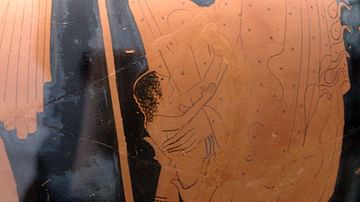
Image
Gaia & Erichthonius
A red-figure vase depicting the earth goddess Gaia giving the baby Erichthonius to Athena. 470-460 BCE. (Staatliche Antikensammlungen, Munich)
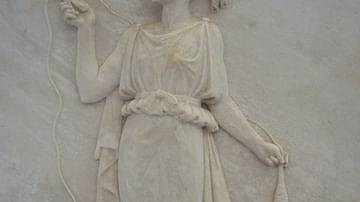
Image
Atropos, One of the Fates
A relief depicting Atropos, one of the Fates of Greek mythology, cutting the thread of life.

Image
Europa & Zeus
A red-figure vase depicting the abduction of Europa by Zeus, disguised as a bull. 350-340 BCE.
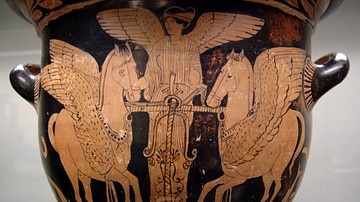
Image
Dawn or Eos
A red-figure vase depicting Eos or Dawn riding her chariot across the sky. 430-420 BCE. (Staatliche Antikensammlungen, Munich)

Image
Dog Figurine from Nimrud
Bronze statuette of a dog, part of the Nimrud dogs, a Neo-Assyrian collection of dog figurines found at Nimrud, currently on display in museums at Baghdad, Iraq; Cambridge, England; New York, America, and Melbourne, Australia. Metropolitan...
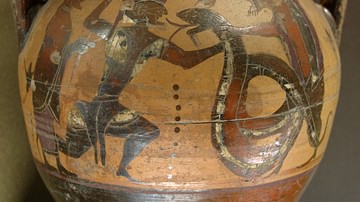
Image
Cadmus Slaying the Dragon
A scene from a black-figure vase of the Phoenician founder of Thebes Cadmus slaying the dragon which dwelt there. From Euboea, 560-550 BCE.
Louvre Museum, Paris.
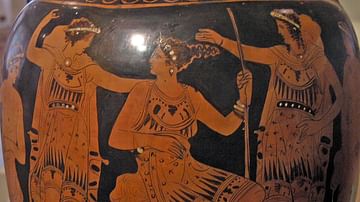
Image
Atalanta
A scene from a red-figure vase depicting Atalanta holding a spear and Meleager during the Calydonian Boar Hunt of Greek mythology. 400-375 BCE. (National Archaeological Museum, Athens)
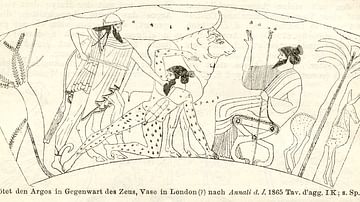
Image
Argus Panoptes
A sketch of a scene from a Greek 5th century BCE red-figure vase depicting the slaying of the one-hundred eyed monster Argus Panoptes by Hermes. (British Museum, London)